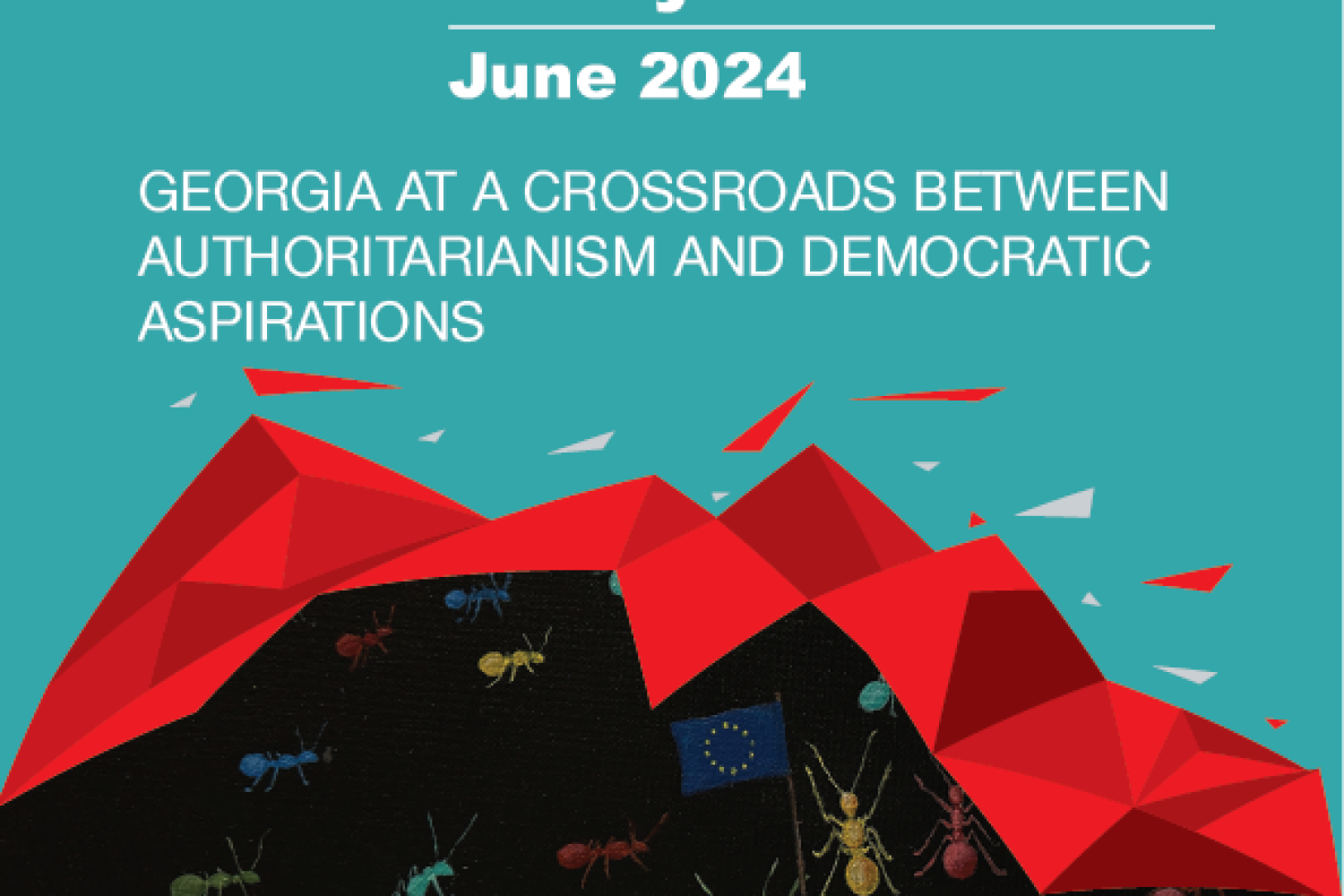2024-06-26 09:31:50
Georgia is currently at a crossroads of whether or not it will continue to pursue a democratic and European future. According to authoritative international platforms monitoring democracies around the globe, Georgia has begun changing rapidly from a semi-consolidated democracy to a semi-consolidated authoritarian regime. In the leadup to the 2024 general election, Georgian Dream, the current ruling party, successfully passed the “Law on Transparency of Foreign Influence” (the so-called “Foreign Agents Law”). This law is widely considered to be a serious threat to the strong and vocal civil society in Georgia. With this step, the Georgian government moves away from the country’s traditional Western partners – Washington and Brussels – and grows more isolated from the democratic space at large. Georgia’s progress towards EU integration is thus at risk of being reversed. As a prelude to the 9th GEODEM2024 Annual Conference, the Georgian Institute of Politics is delighted to present Compendium 2024, an annual collection of policy briefs about the ongoing political situation in Georgia.
In light of recent actions by the Georgian government, the upcoming election has become much more important – perhaps the fate of Georgia’s democracy itself at stake – and the political environment has grown quite tense. Concerns have been raised over the government’s ability to guarantee a fair and transparent election, and risks and vulnerabilities have grown significantly. A large turnout is therefore now more important than ever. This compendium looks at how the more inactive segments of the electorate can be attracted to ballot boxes. Young Georgians – particularly members of “Gen Z” – have emerged as the driver of the Georgian people’s protest against the current government’s undemocratic leanings. Youth movements, political parties’ youth wings, and students have all helped revive and sustain the Georgian pro-democratic protest movement. These developments highlight the growing importance of accountability with respect to young people, and the need to address possible impediments to their political participation. At the same time, the growing number of emigrants from Georgia presents a significant challenge to electoral participation. Addressing the barriers faced by Georgian citizens abroad could thus be very important for the 2024 election to be representative and legitimate.
Political parties are of critical importance during moments of turbulence. They should become fixtures of public life, around which members of Georgian society may advance their pro-European visions by voting. Yet, given that trust for political parties has never exceeded 50% in Georgia, it is clear that political parties need to reexamine themselves,
working to develop more robust internal democratic mechanisms and strategic communication patterns. Meanwhile, electoral clientelism – often considered to be an integral component of Georgian political culture – poses significant challenges to the development of Georgian democracy, and requires urgent attention given the 2024 parliamentary election. The strategic importance of messaging in attracting and retaining voters’ trust is, moreover, something which political parties must inevitably address. Indeed, political downward spiral of Georgia’s undemocratic development, and they need to be prepared to play this role effectively.
Once again, the Georgian Institute of Politics is pleased to present a collection of 2024 policy briefs addressing current and actual political processes, challenges, and prospects in Georgia. We hope that this publication will lead to a fruitful discussion in Georgian society. The documents and papers here can be used as resources by political parties, as well as civil society representatives, industry experts, the academic community, and other stakeholders involved in the democratic development of our country. This collection, as well as previous publications, could not be published without the generous support of the Embassy of the Netherlands and the Embassy of Switzerland in Georgia. We also express our gratitude to the citizens of Georgia, civil society organizations, and the media for their continuous support of our work, and efforts to develop civil society organizations. We thank them, moreover, for their contribution to strengthening democratic institutions and practices in Georgia, without which the development of democracy in Georgia would be impossible.








